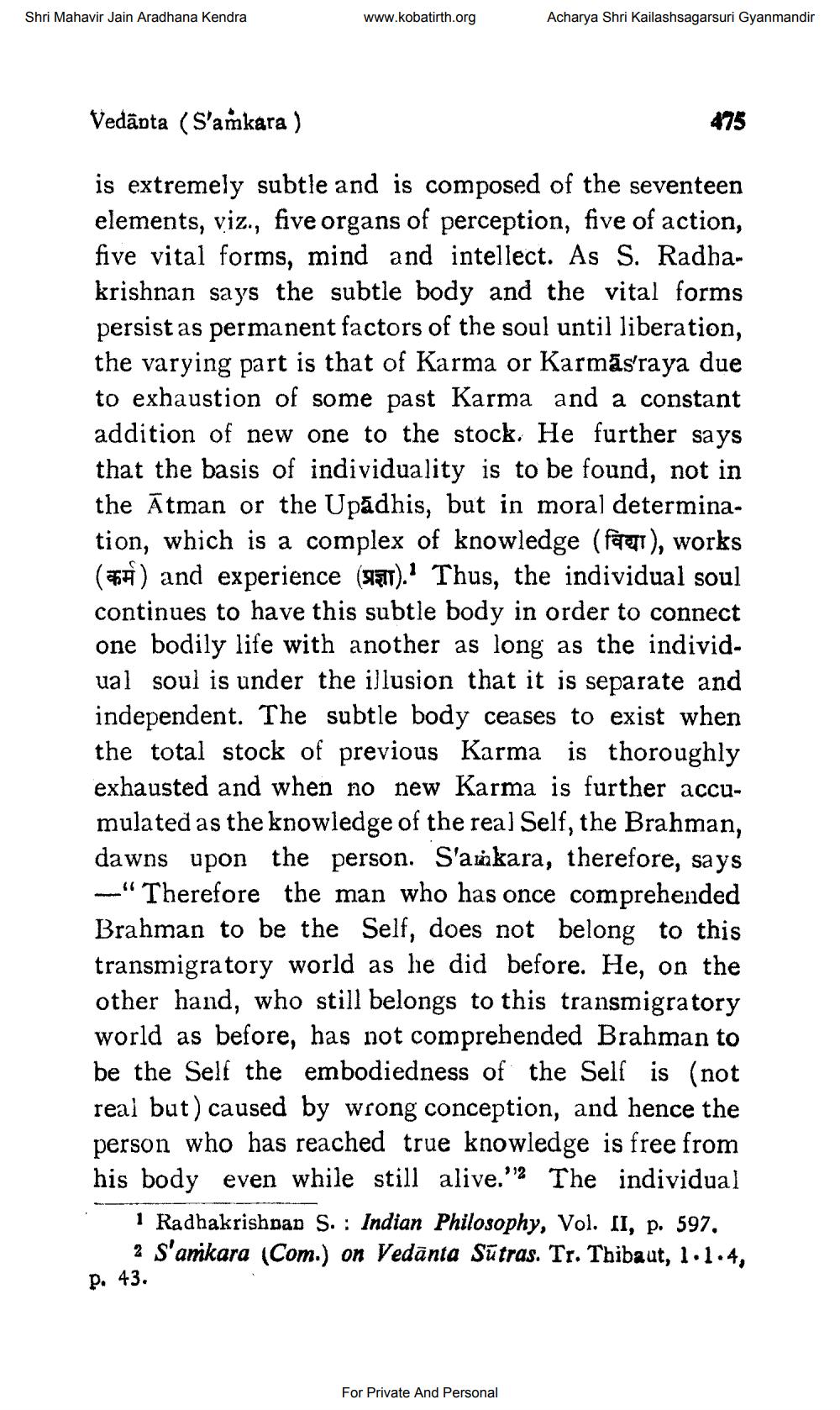________________
Shri Mahavir Jain Aradhana Kendra
www.kobatirth.org
Acharya Shri Kailashsagarsuri Gyanmandir
Vedānta (S'amkara )
475
is extremely subtle and is composed of the seventeen elements, viz., five organs of perception, five of action, five vital forms, mind and intellect. As S. Radhakrishnan says the subtle body and the vital forms persist as permanent factors of the soul until liberation, the varying part is that of Karma or Karmās'raya due to exhaustion of some past Karma and a constant addition of new one to the stock. He further says that the basis of individuality is to be found, not in the Ātman or the Upādhis, but in moral determination, which is a complex of knowledge (faal), works () and experience (313T).' Thus, the individual soul continues to have this subtle body in order to connect one bodily life with another as long as the individ. ual soul is under the illusion that it is separate and independent. The subtle body ceases to exist when the total stock of previous Karma is thoroughly exhausted and when no new Karma is further accumulated as the knowledge of the real Self, the Brahman, dawns upon the person. S'awkara, therefore, says
"Therefore the man who has once comprehended Brahman to be the Self, does not belong to this transmigratory world as he did before. He, on the other hand, who still belongs to this transmigratory world as before, has not comprehended Brahman to be the Self the embodiedness of the Self is (not real but) caused by wrong conception, and hence the person who has reached true knowledge is free from his body even while still alive."2 The individual
1 Radhakrishpan S. : Indian Philosophy, Vol. II, p. 597.
2 s'amkara (Com.) on Vedānta Sūtras. Tr. Thibaut, 1.1.4, p. 43.
For Private And Personal




